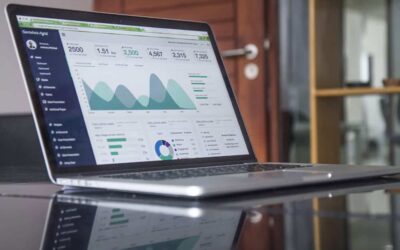Google analytics is an online tool that we always tell our clients to have on their website. It is that important! Analytics is perhaps the biggest reason why digital marketing is more effective than traditional marketing methods. It gives you real time and highly-accurate data on your website’s performance. Analytics will track and measure the performance of your digital marketing campaign:
- Which digital marketing strategies are working?
- If so, which processes are generating the highest ROI?
- Where are my site visitors coming from?
- Which online channels do they frequently use to access my website?
- How long do they stay on my website?
- Which types of content interest my site visitors the most?
- How often do site visitors abandon the transaction at the checkout counter? (For e-commerce businesses)
The answers to these questions will give you valuable insights about your audience. Analytics provides you with hard data that will describe the online behavior of the people who visit your website.
In so doing, you will have empirical basis for improving the performance of your digital marketing campaign. You will know how to make your content better and the most effective channels for distribution. Likewise, you will have the necessary information to fine-tune your digital marketing budget.
There are a number of analytics tools available on the Internet. However, let us save you the time and effort. Just set up Google Analytics for your website. It is quite simply, the best.
What Is Google Analytics?
When our clients hear the word, “Analytics”, they shake their heads.
“We’re not techies. We’re just entrepreneurs. We can’t make heads or tails of all those numbers.”
That’s exactly why we always recommend Google Analytics for our clients. It is easy to set up and simple to use. Best of all, it is free!
Google Analytics is an online tool that collects and generates accurate statistics on website activity. Every time someone visits your website, Google Analytics stores first party cookies on his/her computer. These cookies allow Google to aggregate visitor information in your account.
How does Google Analytics do its job?
It is connected to your website through the use of a tracking code made from Javascript. Google Analytics should be installed on every page of your website that you want to monitor.
Is Google Analytics the preferred analytics tool of businesses? Here are some of the data that was revealed in a study by MarketingLand.com:
- 29.3 million websites or 8.4% of 348 million websites (BuiltWith)
- 52.9% of all websites tracked (W3Techs)
- 48 million websites (SimilarTech)
The methods for evaluating Google Analytics usage may differ but the conclusion is the same.
Google Analytics is the most popular online analytics tool for businesses.
How To Read Your Google Analytics
We mentioned earlier that Google Analytics is easy and simple to use. Please allow us to clarify our statement. It is easy and simple to use. However, like all first experiences understanding Google Analytics will take some time and regular use in order to develop proficiency.
After all, Google Analytics is a skill. To learn a skill, you must constantly work on it. Eventually, with time and enough repetitions under your belt, you will become more comfortable with Google Analytics. Going through its reports will just be second nature.
The first step in learning how to read your Google Analytics is to understand some of its terminologies:
- Visits – Measures the total number of visits to your website by a user during a specific reporting period.
- Unique Visitors – A unique visitor is a person who visits your website for the first time during a specific reporting period. Successive visits in the same period will be considered “additional visits”.
- Pageviews – Tracks the total number of pages that were viewed on your website.
- Pages/Visit – Measures the average number of pages that were viewed by the user.
- Average Visit Duration – Gives you data on the amount of time spent by users every time they visit your website.
- Bounce Rate – Measures the number of times a user visits one page then clicks out of your website.
- New Visitor vs. Returning Visitor – Allows you to compare and analyze the ratio or new visitors to returning visitors to your website.
- City – Identifies the top 10 cities where your visitors come from.
- Page Title – Google Analytics will list the pages viewed by site visitors from highest to lowest.
- Average Time on Page – Measures the amount of time a visitor spent on a specific page that is on the list.
- Entrances – Enumerates the number of times a specific page in the list was visited first by site users during the period of reporting.
- % Exit – Identifies the number of times a specific page in the list was the last page visited by the user before leaving your website.
- Page Value – Used exclusively by those with an e-commerce website in determining transaction values.
- Source – Identifies which channels are referring sources to your website during the reporting period.
- Visits – Measures the total number of visits that were sent to your website from the each respective source.
- % New Visits – The percentage of visits that originated from the respective source identified in the list during the period of reporting.
Once your account has been set up, you will start receiving data from Google Analytics. When you log-in to your account, the first stop will be the Audience Overview report.
Just to pre-empt your surprise, Google Analytics can provide you with more than 50 types of reports. It can get overwhelming especially for first-timers. If you want to open the other reports, you can do so by simply clicking on the “Reporting” link that is located at the top of the page.
We will not have the space to discuss all 50 reports from Google Analytics. However, we can go through 3 types of reports that every first- time user of Google Analytics should get familiar with right away.
Audience Reports
If you want to get a detailed report on your website visitors, the Audience Report feature of Google Analytics will tell you everything you need to know. It will provide you key analytics data on specific characteristics of your site visitor. This data includes the following information:
- Demographics – Population characteristics such as age and gender.
- General Interests – What hobbies or interests your visitors are preoccupied with.
- Location – Where your site visitors come from.
- Language – The breakdown on languages that your site visitors speak or are proficient at.
- Behavior – How often visitors go to your website
- Technology – How your visitors access your website.
Acquisition Reports
As a business owner, it is important for you to know how your visitors came to be at your website. More specifically, you should know what made them want to click onto your website link.
Google Analytics’ Acquisition Reports feature will tell you everything you need to know about your website’s traffic. You will find out where your traffic is coming from. From here, you will be able to pinpoint which online channels are most effective in generating traffic.
This is particularly important if you have a varied Digital Marketing strategy that uses social media marketing, PPC or Pay- Per- Click advertising, and content marketing.
Behavior Reports
If you want to know how your site visitors respond or react about the content that you have published, use Google Analytics’ Behavior Reports. You will get hard data on the following key pieces of information:
- The volume of traffic your website receives.
- How visitors navigate your website upon entry; where do they land and which pages they explore next.
- Your top performing content in terms of the amount of revenue it has generated.
- The top entry points of your website; which pages are most often used by visitors to enter your website.
- The last page users visit in your website before they click out; the data presented here will help you come up with ways to keep your visitors in your site much longer.
- The loading time of your website. You will know if you need to increase site speed or not. Generally, a fast-loading website is better than one that is slow-loading.
- The keywords used by site visitors to find your website.
The data provided by the Behavior Reports are crucial in helping you fine-tune the types of content that should be published in your website and social media accounts.
Again, keep in mind that Google Analytics has a large volume of reports to choose from. Other reports that you may wish to access include the following:
- Mobile Report – Provides key data that lets you know how well your website is optimized for mobile devices. Why is this important? For the reason that mobile now accounts for more than 65% of online traffic, you should be sure that your website is fully mobile-responsive.
- Traffic Acquisition Report – This report will give you hard data on how your digital marketing strategies are performing. You will see if the blog you spent 7 hours researching, writing, and editing is bringing in enough traffic to your website. If you have invested in PPC ads, you will know which ones are being clicked on by viewers.
- Content Efficiency Report – How big is content marketing today? Google Analytics has its Content Efficiency Report to give you more data on how your content is performing. You will know which type of content is generating the highest levels of engagement. You will also find out which of your content is being shared more often by your followers.
- Keyword Analysis Report – Keywords are a key component for content optimization. The Keyword Analysis Report will let you know the most popular keywords used by visitors to access your website.
- New vs. Returning Visitors Report – Knowing that you have returning visitors is great for any business. It means they enjoyed the initial experience and are back for more. How important is this data? Returning visitors will tend to stay longer on your site thereby lowering your bounce rate.
Conclusion – What Are The Benefits Of Having Google Analytics?
Despite the overwhelming number of websites that use Google Analytics, as website developers, we find it incredulous that there are still websites that do not use Google Analytics.
A website remains static unless it is acted upon by online processes that drive traffic to it. This is why if you have a website, you should promote your business with Digital Marketing tools, techniques, and processes. You should be creating content via blogs, articles, videos, and product reviews that meet the interest of your target audience.
Google Analytics is an online tool that can help sharpen your Digital Marketing strategy. It will point out its strengths and iron out its flaws. If you own a website, you should install Google Analytics. Remember, it is for free!
As easy as it is to install, we will be more than happy to help you set up your own Google Analytics account. We will also take the time to get you through the process of understanding the different analytics reports and how you can apply them to your business.
Simply give us a call or drop us an email and we will have your Google Analytics account set up in no time at all!







